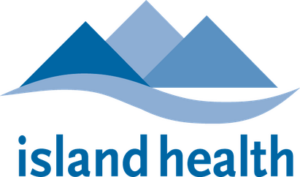Theme
Synergies in action: The power of collaboration
In the dynamic landscape of Canadian healthcare, abundant opportunities for positive change emerge amidst the challenges. Leaders are poised to make impactful strides by dedicating themselves to implementing lasting solutions that will pave the way for a resilient and thriving healthcare system. How can we create synergy and collaboration between teams, health organizations, and possibly provinces to implement creative solutions? What is stopping us from doing it? Why is change so hard to achieve? How do we challenge the status quo and change the way we work together? How can leaders overcome the challenges of cultural barriers, silo-based functions, and distance to foster cohesive, goal-achieving teams? How do we leverage collaboration tools and technology to break down silos to encourage collaborations between communities and organizations?
Healthcare leaders are tasked to solve many challenges with limited resources. Many solutions may have been discussed or reviewed by other health leaders. Developing coalitions and learning from each other can help us achieve better healthcare delivery towards quality patient care. At this Canada West Health Leaders Conference (CWHLC) we hope to collaborate and learn from each other and discover the power of collaboration. We will endeavour to address these questions and create opportunities for health leaders to share success stories and build successful partnerships, relationships, and collaboration models to address challenges such as:
- Unique ways of managing HHR;
- Connected care across the healthcare continuum;
- Virtual and remote care for rural communities; and
- Emergency preparedness.
Through shared goals and a willingness to explore and address challenges, collaboratives can promote stronger relationships across communities and improve delivery of healthcare services.
Conference Objectives
- Create an environment where health leaders get hands on practical learning to apply in their organizations and further their careers and personal growth;
- Offer interactive, unique and innovative learning experiences;
- Offer mentorship opportunities and create an environment that promotes open dialogue and making connections with fellow health leaders;
- Facilitate the exchange of ideas and collaborations on issues of common interest and innovative approaches to address health leadership challenges; and
- Address and debate the health leadership challenges surrounding justice, equity, diversity, and inclusion.
Expected Outcomes
Conference participants will:
- Build strong networks as well as a strengthened sense of community and support from other leaders facing similar challenges;
- Exchange knowledge on leading practices, tools, and ideas that can be implemented into their work settings;
- Engage with other leaders to explore traits of effective and innovative leadership to foster efficient solutions to manage today’s complex times;
- Identify champions of healthcare innovations that will influence improvements in the areas of justice, equity, diversity, inclusion, Indigenous health, and green healthcare; and
- Engage with other leaders to collaborate on innovative and efficient solutions to manage today’s healthcare environment.
Registration
Rate |
Fee |
| Early Bird (Member) | $635.00 + tax |
| Early Bird (Non-Member) | $755.00 + tax |
| Regular (Member) | $805.00 + tax |
| Regular (Non-Member) | $925.00 + tax |
| Speaker | $450.00 + tax |
| Student | $420.00 + tax |
| Patient | $380.00 + tax |
Early bird deadline: September 27, 2024
Registration deadline: November 8, 2024
*For the patient rate, please send information about the patient organization you represent to conference@cchl-ccls.ca.
*For the student rate, please send information on your current enrolment to conference@cchl-ccls.ca.
CCHL members receive a discount on the conference registration fee. Not a member yet? Join the College today for only $195 for the first year. CCHL membership details available here.
Program-at-a-glance
Wednesday, November 13, 2024
| 10:00 – 17:00 | Registration |
| 09:30 – 12:30 | Optional Event – Wanuskewin Workshop |
| 13:30 – 15:30 | Optional Event | Study Tour: Vaccine and Infectious Disease Organization (VIDO) |
Thursday, November 14, 2024
| 06:30 - 07:30 | Wellness Activity - Chair Yoga |
| 07:00 - 16:00 | Registration |
| 07:30 - 08:30 | Continental Breakfast |
| 08:30 - 09:00 | Welcome and opening ceremonies |
| 09:00 - 10:15 | Plenary |
| 10:15 - 11:00 | Networking Break |
| 11:00 - 12:30 |
Concurrent Sessions
|
| 12:30 - 13:45 | Networking Luncheon |
| 13:45 - 15:15 | Concurrent Sessions |
| 15:15 - 16:00 | Networking Break |
| 16:00 - 17:15 | Plenary |
| 17:15 - 18:30 | Reception |
Friday, November 15, 2024
| 07:00 - 14:00 | Registration |
| 07:00 - 08:00 | Continental Breakfast |
| 08:00 - 09:15 | Plenary |
| 09:15 - 09:45 | Networking Break |
| 09:45 - 11:15 | Concurrent Sessions |
| 11:15 - 12:15 | Plenary |
| 12:15 - 12:30 | Closing ceremonies |
| 12:30 - 14:00 | Networking Luncheon |
* Program is subject to change without notice
Keynote Speakers
Thursday, November 14, 2024
09:00 - 10:15
We can’t do it alone: How collaboration is essential to healthcare reform
Canada’s health system is very siloed. But resolving our overlapping, interconnected challenges can’t be done in isolation.
A veteran journalist explores how health leaders can work together to solve common problems.
André Picard – Award-Winning National Health Writer
André Picard is a health columnist at The Globe and Mail and a bestselling author, including 2021’s Neglected no More: The Urgent Need to Improve the Lives of Canada’s Elders in the Wake of a Pandemic, as well as Matters of Life and Death: Public Health Issues in Canada, and The Path to Health Care Reform: Policies and Politics. Additionally, he is currently a visiting professor at the University of British Columbia’s School of Journalism, Writing, and Media with his lessons focusing on the pandemic and public policy.
André has received much acclaim for his writing, including the Michener Award – a prestigious award dedicated to meritorious public service journalism, the Centennial Prize of the Pan-American Health Association – an honour presented to top health journalists in the Americas, the 2020 Owen Adams Award of Honour – the highest Canadian Medial Association award available to a non-physician, and recently the 2021 Tribute Award from the Canadian Journalism Foundation – an award presented to media luminaries who have made an exceptional impact. He is also an eight-time finalist for the National Newspaper Awards – Canada’s version of the Pulitzer Prize.
He is a seasoned communicator who employs a conversational style to reach his audience. He enlivens his research and commentary with personal stories to provide context for his audience, including anecdotes from patients and health professionals in the front lines.
André will enlighten and pique a sense of curiosity of audience members from all educational backgrounds. His work as one of North America’s top health journalists reflects his personality: Behind the placid exterior lies an inquisitive, perceptive and industrious scribe for whom the work only begins with the official story.
André is a graduate of the University of Ottawa and Carleton University, and has received honorary doctorates from six universities, including the University of Toronto, UBC and the University of Manitoba.
Thursday, November 14, 2024
16:00 - 17:15
Nothing about us without us: ReconciliACTION through Collaboration
Earlier this year, the Canadian College of Health Leaders published a Commitment to Improve Health Services Leadership for Indigenous Health in Canada. Through decolonial, Indigenous, and intersectional lenses, Dr. Jaris Swidrovich will summarize the lay of the land with respect to Indigenous Peoples’ health in Canada, ignite critical consideration of health leaders’ roles and responsibilities in Indigenous health, and suggest several tangible strategies and synergistic actions for health leaders to engage in truth and reconciliation across Canada through meaningful collaboration.
By the end of this session, participants will be able to:
- Illustrate the personal, community, and systemic impacts of previous and current Canadian government policies and practices on Indigenous Peoples.
- Summarize the current state of Indigenous Health and Indigenous Peoples’ experiences in Canada’s health systems.
- Interpret and apply the differences between cultural awareness, cultural sensitivity, cultural competence, and cultural safety, with a focus on Indigenous Peoples.
-
Using the Canadian College of Health Leaders’ LEADS Framework, identify ways in which health leaders can contribute to reconciliation.
Dr. Jaris Swidrovich – Assistant Professor and Indigenous Engagement Lead, Leslie Dan Faculty of Pharmacy, University of Toronto | Founder and Chair of the Indigenous Pharmacy Professionals of Canada
CIHR and SSHRC-funded researcher, National Pharmacy Leadership Award winner, and named one of CBC Saskatchewan’s "Future 40", Dr. Jaris Swidrovich (he/they) is Canada's first self-identified First Nations Doctor of Pharmacy and the first and only Indigenous pharmacist faculty member in North America. Professor, Mentor, and Community leader, Dr. Swidrovich brings his experience of bridging organizational needs with health care mandates. He is passionate about health, education, and how Indigenous and made-marginalized people are impacted at all levels. He integrates personal stories to explain complex issues which resonate with listeners of all ages. His powerful presentations illustrate how we can all be part of the cure and partake in the TRC’s Calls to Action.
Dr. Jaris Swidrovich’s primary employment is as an Assistant Professor and Indigenous Engagement Lead in the Leslie Dan Faculty of Pharmacy at the University of Toronto. He is a queer, Two Spirit, Saulteaux and Ukrainian pharmacist from Yellow Quill First Nation (Treaty 4 territory, Saskatchewan). His mother was a 60s Scoop survivor and his grandmother and great-grandmother both survived Indian Residential Schools.
He holds a Bachelor of Science in Pharmacy, a post-baccalaureate Doctor of Pharmacy, and a PhD in education. His primary areas of research and practice include pain, HIV/AIDS, substance use disorders, 2SLGBTQ+ health, and Indigenous health. As a Two Spirit, First Nations, and disabled person himself, Dr. Swidrovich brings a strong lens of equity, diversity, inclusion, intersectionality, and social justice to his research program.
Dr. Swidrovich is the Co-Scientific Director of the CIHR-funded Saskatchewan Network Environment for Indigenous Health Research (SK-NEIHR) called nātawihowin (“art of self-healing” in Cree), which is a First Nations Research Network that supports researchers, students, and First Nations health leaders and communities in Saskatchewan and beyond. Dr. Swidrovich is the founder and chair of the Indigenous Pharmacy Professionals of Canada, and also sits on several other local, provincial, and national boards, including The 519, Pain Ontario, Pain Canada, and the National Collaborating Centre for Indigenous Health.
Dr. Swidrovich is an active and engaged citizen of the several communities he belongs to and has been recognized with several awards and honours, including the Queen Elizabeth II Platinum Jubilee Medal for service to the community and the National Patient Care Achievement Award from the Canadian Pharmacists Association.
Friday, November 15, 2024
08:00 - 09:15
The misinformation crisis: Collaboration as a cure
In today’s rapidly evolving digital landscape, the spread of misinformation has emerged as a critical threat to public health, social cohesion, and democracy itself. Dr. Katharine Smart will explore how misinformation during the COVID-19 pandemic exposed the vulnerability of our healthcare systems, eroded trust in public institutions, and undermined efforts to tackle global challenges. Dr. Smart will highlight the psychological, technological, and social drivers of misinformation, and the impact on healthcare, public health, and political stability.
Could the solution lie in the power of collaboration? Drawing on her experience as a healthcare leader, Dr. Smart will demonstrate how leaders across healthcare, technology, government, and the media must work together to combat false narratives, restore trust, and foster resilience. Attendees will gain insights into how cross-sector partnerships, virtual care innovations, and effective communication strategies can help counter misinformation and pave the way for more cohesive, evidence-based decision-making in healthcare and beyond.
Join this session to explore the vital role of synergy in addressing one of the defining challenges of our time and learn how collective action can turn the tide on misinformation.
Dr. Katharine Smart – Pediatrician, Medical Leader, Passionate Advocate
Dr. Katharine Smart is an experienced medical leader and advocate who constantly challenges the status quo in medicine. A pediatrician in Canada’s north, her work focuses on innovative and collaborative partnerships between community and government to serve marginalized children in rural and remote areas. An outspoken advocate against misinformation, Dr. Smart regularly uses her voice to bring evidence and facts to the forefront of health communication.
Dr. Smart is a past president of the Canadian Medical Association (CMA), where in 2021 she became the 10th woman to serve in the organization’s 155-year history. A fierce and authentic leader, she has become a recognized and respected medical voice in Canada. Dr. Smart has been recognized as one of Canada’s 100 Most Powerful Women, with the Medical Post’s Changemaker Media Award and the Waterfalls Global Award. In recognition of her advocacy for primary care and family medicine she received an honourary membership from the Canadian Family Physicians of Canada. She has held many leadership positions including president of the Yukon Medical Association. She sits on the boards of Ronald McDonald House charities, ACTUA a STEM education outreach organization for youth and SE Health.
Dr. Smart is a passionate communicator and sought-after media expert, keynote speaker, panelist and podcast guest. She is the host two podcasts- Health Signals and SPARK: Conversations, Children’s Healthcare Canada’s monthly podcast series.
Dr. Smart’s clinical work has spanned the breadth of Pediatrics. She started her career as a pediatric emergency medicine physician at the Alberta Children’s Hospital in Calgary. She has worked in Australia, Vancouver and across Canada’s north. Her current clinical focus is providing care to children who have experienced adverse childhood events using a model of social pediatrics in the Yukon. For this work she was recognized with a Yukon 125 commemorative medal awarded for impact and embodiment of the values of leadership and reconcilliation.
Friday, November 15, 2024
11:15 - 12:15
Leadership, I feel we’re losing touch, but not everywhere: synergies among us
A year ago, health systems were primed for transformation, particularly after all the outstanding things we had achieved together since the pandemic first onset. Forced to change, organizations innovated at a speed and on a scale that was previously unbelievable, and many collaborated much more widely and effectively – including with those in other sectors – than ever before.
Given the volatile, uncertain, complex (at times, chaotic), and ambiguous (VUCA) context, leaders shifted their entire approach, away from top-down management to more enabling roles aimed at supporting their people to produce results however they saw fit.
Likewise, many informal leaders, staff, and physicians enjoyed remarkable decision-making autonomy and flexibility in deciding how to best meet their targets and collectively, to realize the organizational True North (purpose, vision, mission, and values), given the ever-evolving landscape.
A year ago, we were primed for transformation and had the leadership we needed to advance it, but in many cases, the draw to return to the familiar, to how things were before… uncritically, and, to some extent, thereby ignore and even negate our tremendous progress, has been considerable. In short, we are losing touch with the leadership breakthroughs we demonstrated throughout the various stages of this crisis.
We know that our health systems cannot continue as they are now; we need systems transformation; and this can only be truly achieved through integrating leadership and partnering across and among organizations and regions to create the synergy that is vital for success. Fortunately, there are shining examples of organizations and health leaders who are sustaining and even advancing outstanding leadership.
In this plenary session, we will identify some key leadership lessons at the organizational, individual (positional), and informal levels that should not be lost and offer examples from CCHL partner organizations and others whom we can look to for guidance and inspiration.
Dr. Jaason Geerts – Vice-President, Research and Leadership Development, Canadian College of Health Leaders
Dr. Jaason Geerts is the Vice-President of Research and Leadership Development at the Canadian College of Health Leaders (CCHL) and an associate at the Centre for International Human Resource Management (CIHRM) at the University of Cambridge Judge Business School.
Jaason completed his PhD at the University of Cambridge on leadership for professionals after a teaching degree and two Master’s from the University of Toronto and Cambridge respectively.
Along with being a TEDx speaker and giving keynote addresses at several prominent conferences, Jaason’s work has been featured in international peer-reviewed journals, including BMJ journals, the Globe and Mail, CBC national news, CTV news, and local radio, as well as globally through the International Hospital Federation (IHF).
The model of leadership in a crisis that Jaason created is the theoretical foundation for a recent successful CIHR research grant valued at $450,000 and he participated as an invited international expert advisor for a World Health Organization (WHO) symposium on health system recovery.
Jaason is also a program director and instructor at the Telfer School of Management (University of Ottawa) and the Schulich School of Business (York University).
Jaason is also a qualified teacher and was nominated for the Toronto Star’s Teacher of the Year.
Concurrent Sessions
11:00 - 12:30 | Thursday, November 14, 2024
1. Activate adaptive and inclusive leadership and enhance your leadership capacity in complex times with the LEADS in a Caring Environment Framework
Welcome to the preview of the key elements presented in the updated LEADS Leadership Foundations (LLF) Program curriculum, launching in January 2025 through the Canadian College for Health Leaders (CCHL).
This interactive session will demonstrate how to effectively utilize the philosophy and capabilities of the LEADS in a Caring Environment Framework to implement leadership practices suited for today’s Volatile, Uncertain, Complex, and Ambiguous (VUCA) environment. It will also illustrate how to integrate the principles of Equity, Diversity, and Inclusion (EDI) across different domains of the LEADS framework and address the challenges related to psychological safety within diverse teams.
Participants will actively engage in activities designed to provide a glimpse into the enhanced LLF content with a focus to internalize and apply these principles, guided by the foundational leadership ethos of "Know Thyself."
Speakers:
Betty Mutwiri - CCHL Leadership Faculty, Certified LEADS Coach & Facilitator
Michelle Gilchrist, CHE - MUrģel Transitions Ltd. | Founder & Principal Leader | Professional Credentialed Coach & Strategic Leadership Consultant | CCHL Leadership Faculty
2. Strategically Partnering with Others: When Is Collaboration Needed and When Might Less Resource-Intensive Strategies Suffice?
In complex healthcare environments, the necessity of collaboration can become an unquestioned premise, and collaboration even might be understood as a “magic concept”: a concept which is “very broad…and lay[s] claim to universal or near-universal application” (Pollitt & Hupe, 2011, p. 643). However, given that collaboration is inherently challenging, resource intensive, and can have low odds of success (Bryson & Crosby, 2015) leaders should engage in collaborative approaches only when they are, in fact, the most suitable approach.
This workshop will introduce a framework that positions various partnership strategies on a spectrum, each with its own unique drivers and resourcing requirements. It will define the three most common strategies—cooperation, coordination, and collaboration—and explain how they might be differentiated through considering: (1) the orientation of partners (the desired degree of integration and risk), (2) the organization of partners (the degree to which decision making and resources are shared), and (3) the complexity of partners’ shared purpose. Facilitators will share a framework developed to guide practitioners in assessing the appropriate strategy (Keast, Waterhouse, & Murphy, 2022). Workshop participants will then be led through a process of individual reflection and small and large group discussions, in which they will consider an initiative in which they are engaged that calls on partnering with others. The appropriate partnership strategy and implications will be discussed.
This workshop will expand participants’ knowledge of different partnership strategies and offer insights that might immediately be applied. Participants will hone their skills as integrative leaders (Crosby & Bryson, 2010), so that they might increase the likelihood of partnership success. The workshop will be relevant to those engaged in partnership situations at the policy, administrative and practice levels, including those involving patient and family engagement.
Speakers:
Amy Zidulka - Associate Professor, Royal Roads University
Ingrid Kajzer Mitchell - Associate Professor, Royal Roads University
3. Breaking silos, building bridges: Leveraging multidisciplinary collaboration for in-home care innovations
In response to the critical need to optimize healthcare resource utilization and enhance patient care, a novel initiative was co-designed and launched in April 2024, in partnership with Alberta Health Services and CBI Health, with support from the provincial government. This project, aimed at enabling Calgarians to remain in their homes for extended periods, directly addresses the congestion in acute and post-acute care facilities by providing comprehensive in-home care and rehabilitation services. Our multidisciplinary approach integrates nursing, primary care, and active rehabilitation, tailored to meet the needs of patients requiring more intensive support than traditional home care offerings.
This campfire session will include an overview of the project's genesis, objectives, and initial outcomes. We will then transition into an interactive discussion focused on the collaborative processes and lessons learned. Key insights will be shared regarding the challenges of overcoming silo-based operations and fostering effective cross-organizational teamwork under tight timelines and resource constraints.
Participants are encouraged to engage in a dialogue about strategies for enhancing collaborative efforts in healthcare settings, exploring how similar models can be/ have been adapted and implemented in their respective environments. The session aims to highlight the critical recognition of the need to support psychological safety, curiosity, and empathic listening within and across our organizational teams. These elements are vital for nurturing effective collaboration and driving innovative care solutions across organizational boundaries, traditional power dynamics and mindset to embrace true collaborative synergy across various healthcare sectors.
This presentation will not only delve into what was achieved and how it was accomplished but also reflect on the adjustments needed for future initiatives. Through this exchange, we aim to foster a deeper understanding of effective leadership in driving systems transformation and developing coalitions, in line with the LEADS framework, thereby promoting more resilient healthcare systems through innovative community-focused solutions.
Speakers:
Antoinette Quach - Regional Director, CBI Health
Heather Mughal - Care Manager, In Home Restorative Care Program (IHRC) with Alberta Health Services (AHS)
Krista Chapman - National Senior Director of Clinical Excellence & Quality, Home Health & Specialized Community Services, CBI Health
Lesley Myles - Executive Director, Seniors, Palliative and Continuing Care, Alberta Health Services Calgary Zone
4. Lightning session – Systems Transformation
4.1 The Triad Leadership Model (TLM)
The Triad Leadership Model (TLM) takes the traditional dyad model of an operational and medical team and integrates a third leader, an Indigenous Health Manager who has equal responsibility and accountability. The triad leaders share direct responsibility for operations, strategy, and outcomes (experiences, health, etc.).
The triad leaders, in partnership with communities, co-develop ways to improve upon the offering and delivery of culturally safe and welcoming spaces, programs and services. Direct feedback from the communities served has indicated that this model has a positive impact in the way communities are involved in care and planning for care. This leadership model is guiding care delivery in ways not experienced before. Communities have informed us that this new leadership model is having a positive impact on their relationship with the healthcare system.
The Triad Leadership Model was first tested in the northern geography of Island Health (IH). The success of the structure and clinical governance model in highlighting where racism exists and thereby identifying opportunities to improve on cultural safe services was recognized. As a result, the TLM has expanded to an additional area and is being spread across other geographies within IH.
Having a collaborative leadership team that is aligned and sets direction using three discreet lenses (Clinical, Indigenous, management) clarifies direction for the team and reduces the possibility of conflicting or confusing messages for each team member. This collaborative approach is especially important in rural setting where teams are smaller and rely on each other for shared decision making at the front lines. Knowing that the focus of direction is neither exclusively physician nor operations driven, and that the Indigenous/cultural lens has been applied is reassuring and instills confidence in the direction set, and ensures that Indigenous families will have increased access to culturally appropriate and culturally safe care.
Speaker:
Dean Wilson - Manager, Indigenous Health, Island Health
4.2 Enhancing care with allied health support roles: strategies and benefits
Allied health capacity is limited due to recruitment, retention, and budgetary challenges. At the same time, patients in our health system have increasingly complex functional and social needs which are often best supported and addressed by allied health clinicians. Including support roles (assistants or technicians) provides opportunity to enhance patient care in a more cost effective and sustainable way. This lightening presentation will share three examples of the successful use of allied health support roles which have helped to optimize allied health clinician scope and address in-hospital patient decline.
Engaging through story telling, this presentation will help leaders gain understanding of the potential for allied health support roles in transforming care delivery in their area of service. Specifically, they will learn about the utilization of a clinical diet technician who helps address malnutrition in hospital, rehabilitation assistants who support maintaining function from day one, and social work assistants who provide key supports to the most marginalized patients. Increased direct patient care time, more focused use of specialized clinician time and improved staff satisfaction are some of the notable outcomes.
Leaders will leave with an understanding of key elements required for the successful implementation of these new models including:
- a clear analysis of gaps and care needs for the identified population
- horizontal, vertical, and interdisciplinary collaboration (including patient partners)
- defined and ongoing evaluation
This presentation will encourage leaders to consider how the implementation of allied health support roles could positively shift care delivery and resource utilization in their service areas.
Speaker:
Jaki Thornhill - Director, Allied Health Education & Organizational Strategy, Providence Health Care
4.3 From a patient's concern to a validated screening test: Multi-agency collaboration and the ClarityDX Prostate success story in Alberta
Prostate Cancer is the most commonly diagnosed cancer in men with 24,600 new cases diagnosed and 4,600 deaths in Canada in 2022. However, when an Alberta businessman was faced with a diagnosis of prostate cancer several years ago, his surprise at the lack of research in this area sparked a movement. Over the past decade, patient-driven fundraising combined with academic and clinical research, interdisciplinary clinician engagement, and international influences culminated in the evolution of a validated test involving biomarkers and machine learning. This test stands to revolutionize prostate cancer screening through incorporating an efficient, inexpensive approach that is safe and effective, with the potential to reduce invasive procedures, improve clinical outcomes, and save costs, thereby achieving systems transformation.
What has allowed this disruptive innovation to overcome the many challenges within the single-payer, not-for-profit Canadian system is the development of coalitions through the involvement of stakeholders early and at each stage; visionary trailblazers leveraging connections, support, and opportunities to engage others; and access to fundraising, investors, and government-based grants and avenues to achieve results.
In 2024, Alberta Health Services Innovation and Business Intelligence Team, Surgery Evidence Decision Support Program, Nanostics and the Alberta Ministry of Health are performing a Province Wide Health Technology Evaluation Trial to assess impacts on clinical decision making, health outcomes and systems utilization. Ultimately, this undertaking promises to inform and define the future patient-centered clinical pathway for prostate cancer risk stratification that stands to save thousands of lives and millions of healthcare dollars in the process.
Speaker:
Sean Secord - VP, Nanostics Precision Health and The University of Alberta
4.4 Impact of a national digital portal to support mental health and substance use health needs at scale: Lessons learned from Wellness Together Canada
The federal government funded Wellness Together Canada (WTC) from April 2020 to April 2024, in response to a significant rise in mental health and substance use challenges during the COVID-19 pandemic. As a ground-breaking online portal, WTC provided universal, free, 24/7 access to a range of services for the Canadian population, based on the Stepped Care 2.0 model. The portal came about through the collective leadership of partners and service providers across the country. Services ranged from self-guided resources and tutorials to peer support and groups, to rapid access to professional counselling (delivered through a one-at-a-time approach) that is traditionally considered to fall under provincial jurisdiction. In this presentation, we will explore preliminary findings regarding the impact of WTC across the following evaluation domains: awareness, access, satisfaction, well-being, system integration, and equity. Our findings indicate that more than 1 in 10 people across Canada (4M+ people) have accessed the portal at least once, with most accessing outside of regular business hours and at lower intensity levels, and with strong levels of satisfaction. In the absence of WTC, users indicate they would have either done nothing, or gone to their family doctor or an emergency room. Lessons learned from implementation are discussed, including 1) it is possible to provide universal coverage at the pan-Canadian level; 2) such coverage can address gaps and inequities in care, especially after hours; 3) lower intensity and one-at-a-time services have an important role to play; and 4) creative and flexible approaches are needed to strengthen equitable access through engagement and to implement measurement-based care while upholding privacy and choice. Through collective reflection from health leaders, lessons learned from Canada’s first national digital mental health portal can be considered for future universal programs, the 988 crisis line, and targeted transfers for mental health and substance use health.
Speaker:
Hajin Lee - Postdoctoral Fellow, Women's College Hospital; Stepped Care Solutions
4.5 Leveraging the Power of Collaboration to Empower Interdisciplinary Health-Care Teams by Integrating Psychological Health and Safety
Canada is in the midst of a primary care crisis. Primary care is the first point of contact for people living in Canada with the health-care system outside of hospitals — often via a family physician or nurse practitioner. Unfortunately, an estimated 6.5 million people do not have a family physician or nurse practitioner. We recognize that no one practitioner can do it all given the health issues people face today. Patients — especially those with chronic or complex health needs — are better served by a team whose skills complement each other. However, there is still a gap in providing practice opportunities and training for health-care teams to work collaboratively. Team Primary: Training for Transformation (TPC) initiative strived to address this gap.
This lightening session will describe the power of collaboration that TPC leveraged with over 40 practitioner-specific and team training projects to increase preparedness to practice in a collaborative approach to care delivery.
TPC recognized that an important enabler for interprofessional primary care teams is to create psychologically healthy and safe (PH&S) workplaces and learning environments. A PH&S environment leads to improved team learning, team performance, and continuous quality improvement environments (Donovan and Mcauliffe, 2020).
This presentation will highlight collaboration with demonstration sites to integrate PH&S and increase access to quality care. Participants will also learn about the newly launched PH&S toolkit for teams and training programs. This toolkit focuses on seven themes based on Canada’s National Standard for Psychological Health and Safety in the Workplace, which aligns with the LEADS Framework.
Learning objectives - Describe the:
- Power of collaboration that Team Primary Care leveraged in the Training for Transformation initiative
- Application of the toolkit to interprofessional primary care teams and training programs.
- Impact of PH&S on quality of care and alignment with LEADS domains
Speaker:
Hannah Kohler (She/Her) - Senior Program Manager, Prevention and Promotion Initiatives, Mental Health Commission of Canada
5. Starving for collaboration: Addressing hospital-based malnutrition and the power of teams
Despite a general understanding of the need for proper nutrition, there is a lack of awareness around the prevalence of malnutrition in Canada, which exists in up to 1 in 2 adults and 1 in 3 children admitted to hospital. Evidence further suggests that 75% of malnourished patients are not detected; this leaves this patient population underserved and nutritionally compromised.
This issue is further complicated by a general lack of understanding of the impact that nutrition – and malnutrition – plays in patient care. Within 30 days post-discharge, ~25% of adults lose at least 5 pounds and 20% are readmitted to hospital. Malnutrition exacerbates existing challenges related to access to care, cost containment and, most importantly, ensuring the best possible outcomes for patients.
The Canadian Malnutrition Task Force’s (CMTF) mission is to reduce malnutrition by sharing knowledge which includes informing leaders as well as the general public about the importance of optimal clinical nutrition care.
This CMTF interactive session is designed to:
- Share baseline knowledge regarding the incidence and challenges associated with hospital-based malnutrition
- Listen to and learn from participants regarding shared solutions that can be set in place to address hospital-based malnutrition
- Ideate on how we, as a collective of healthcare professionals and leaders, can work collaboratively to address hospital-based malnutrition.
Learning Objectives: By the end of this session, participants will:
- Increase their awareness of the impact of malnutrition on individuals, organizations and health systems
- Understand how leading practices in nutrition care can improve access, reduce hospital length of stay, prevent readmission and improve patient outcomes
- Listen to and learn from National leaders regarding leading practices in hospital-based Nutrition and how these practices can be integrated into their own organizations
- Dialogue with peer leaders on the challenges associated with hospital-based malnutrition and ideate on solutions aimed at system-wide improvements
Speakers:
Dr. Leah Gramlich - Dept of Medicine, University of Alberta
Roseann Nasser - Co-chair, Canadian Malnutrition Task Force
Sue Owen - CEO, Impreza Consulting
13:45 - 15:15 | Thursday, November 14, 2024
6. Certified Health Executive (CHE) Bootcamp
Currently enrolled in the CHE Program? Or interested in pursuing your CHE? The CCHL national office is pleased to present this information session to provide an insight and guidance for those currently enrolled in the CHE program and for those looking to apply in the future. The session will offer an overview of the CHE program and application. A graduate of the program will share their experience and a CHE evaluator will communicate what they look for when reviewing the LEADS in Action Project and Candidate Self-Evaluation. There will be time for questions and answers during the session.
Speakers:
Stéphane Joannette – Director, Professional Certifications and Strategic Alliances, The Canadian College of Health Leaders
Mike Benallick, CHE - Director of Organizational Effectiveness and Leadership, Saskatchewan Health Authority
Michelle Gilchrist, CHE - MUrģel Transitions Ltd. | Founder & Principal Leader | Professional Credentialed Coach & Strategic Leadership Consultant | CCHL Leadership Faculty
7. Doing things Differently: The Integration of Health and Social Care as a Path to System Transformation
As leaders seek to achieve better outcomes for patients, providers, populations and systems, a common theme has emerged, we need to do things differently. To make improvements we need to address complex issues rooted in complex systems, collectively, as no one individual, organization or sector owns the mandate of health and well-being. This includes leveraging our strengths, partnering meaningfully, engaging deeply and working with partners outside of the traditional health system. Through highlighting recent pan-Canadian work to improve more equitable access to palliative care and enabling aging in place, the team at Healthcare Excellence Canada will share key learnings that have enabled successful improvement work happening across the country. Locally, the Saskatchewan Health Quality Council will share their journey of embracing emergence, and strengthening connections to drive change across health, social and community sectors through a strategy to improve care closer to home for older adults. Examples from healthcare teams in diverse geographic contexts will be shared to aid in participant learning.
Cross cutting themes and learning related to partnership as an enabler to more equitable care will be explored throughout the session. Foundational within this discussion will be exploration around the importance of engagement with those with lived and living experience. Looking at evidence-based solutions that exist within our communities, learners will be encouraged to consider how program design, delivery and evaluation can perpetuate inequities or create a more just health system.
This hands-on workshop is designed to be activity based with learners participating in a fun, engaging and thought-provoking exercise that will provide an opportunity for reflection, sharing and learning. This active process will use a creative simulation exercise to have participants work together to do things differently- with a goal to create better outcomes for patients, providers, populations and systems.
Speakers:
Lindsay Yarrow - Senior Program Lead, Healthcare Excellence Canada
Jennifer Wright - Senior Improvement Lead, Saskatchewan Health Quality Council
8. Campfire session – Engage Others
8.1 Virtual Emergency Department in Rural Health
In April 2022, shortage of onsite emergency room physicians in rural sites in the Western Zone (WZ), NL Health Services necessitated the development of alternate, innovative ways to deliver safe, effective care. Demands on emergency services, challenged by recruitment and retention efforts, impacted the onsite physician resources available to staff the emergency departments (EDs). With up to 3 ½ hours of travel from rural sites to the regional site, innovation and engagement was necessary to develop a strategy to ensure safe, timely care in the absence of an onsite physician.
Providing emergency services virtually, an innovative way of delivering services traditionally provided onsite, was identified as a strategy to sustain rural EDs during physician shortages. To achieve success with the introduction of Virtual ED(s), engagement with communities and other disciplines was essential to planning, implementation, and evaluation. Addressing challenges related to change processes, technology usage, skill mix and competency changes, and using a collaborative approach, has enabled achievement of integrating virtual ED(s) within rural sites.
Within our newly established models, RNs and NPs working within scope of practice are successfully managing Virtual ED(s), and are providing safe, effective care with the support of virtual physicians. Virtual EDs have rolled out to 3 rural sites in the WZ for a total of 4159 hours with no ED closures or diversions. Provincially work happened in all its 5 zones to review current and best practices, and to determine a standard care delivery model for rural sites. The approach implemented in the WZ was determined to be a model for spread within other Rural Sites within the province.
Continued success of Virtual EDs relies upon ongoing engagement with communities and regional/provincial teams so that ongoing changes are implemented to meet changing needs. Thus far, feedback indicates patients are experiencing safe emergency care.
Speakers:
Cathy Buffett - Regional Director of Rural Health Services, Western Zone, NL Health Services
Karen Hynes - Patient Care Coordinator, Bonne Bay Health Centre, NL Health Services
8.2 Creating Community in the Digital Age: The Super Feelers Club Story
This session will delve into the story of developing lived experience led podcasts that aim to reduce stigma, promote health literacy, and provide hope for people living with the world’s most stigmatized mental illness borderline personality disorder (BPD) and how it they led to The Super Feelers Club. The Super Feelers Club is a low barrier, virtual peer support group born from a collective need and led solely by those with lived experience.
Operating beyond the confines of traditional organizations, The Super Feelers Club is wholly led by individuals who intimately understand the challenges of navigating BPD yet many of whom felt isolated and alone in their struggles. By harnessing our lived experiences, principles of LEADS, and a genuine connection between peers we've been able to cultivate a safe, empathetic space where individuals feel understood and supported.
The Super Feelers Club journey is a testament to the power of human connection in the digital age and that sometimes simply trying something despite the perceived barriers and warnings of others is the way to make meaningful change.
What sets us apart is not only our ability to build community but also the remarkable success we've achieved. Contrary to common apprehensions surrounding peer support for BPD, we've encountered minimal challenges and witnessed overwhelming positive outcomes. This session offers a firsthand account of our journey, presented by one of the creators who lives with BPD herself. She will share insights, celebrate successes, and inspire others to embark on similar paths of community building and empowerment.
Speaker:
Laurie Edmundson - Lived Experience Advocate, Podcaster, BC Mental Health and Substance Use Services
9. Track and trace products from dock to bedside: Leveraging the potential of the new GS1 2d datamatrix barcode and identifier technology
Tracking a bottle of water from origin to consumption is possible today. Can the same reality exist for medical devices and pharmaceuticals travelling throughout the hospital to bedside? In this session we will explore the evolution of barcode standards, the information they can encode, and the processes and use cases the new GS1 2D Barcode can enable. We will also examine the use of community registries that can support additional downstream digital use cases.
Speaker:
Anjan Sidhu - V.P. Healthcare, GS1 Canada
Cameron McEwen - Director, Business Solutions, GS1 Canada
10. Taking LEADS global: A synergy in support of international health leadership
LEADS Global and the Canadian College of Health Leaders have developed a formal collaboration to bring the wisdom and perspective of the LEADS in a Caring Environment capabilities framework to health leaders in Canada and internationally. Both organizations believe that the future of health care depends on the highest quality of leadership to lead the needed transformation, and that many of the issues and concerns leaders face while doing so are both domestic and global in nature. While CCHL focuses its energy primarily on satisfying the needs of the Canadian health system, LEADS Global extends its energy and practice to establish partnerships and programs abroad. Projects identified as vital to both efforts are the LEADS refresh itself, which will benefit from international perspectives, but also supporting collaborations between Canadian health leaders from other countries, such as the USA, the UK, Australia, and many middle and low-income countries such as Kenya, Nigeria, and Chile. Canadians can learn as well as help learn; and the international work can facilitate mobilization of wise practices across multiple borders.
This session will outline the vision for leadership development that both CCHL and LEADS Global share, and profile some of the international connections that have been built in the process of taking LEADS abroad. These include coalitions with Accreditation Canada, the Royal Canadian College international, and the World Health Leadership Network. Health leaders who are interested is expanding their knowledge through linking with health leaders in over fourteen countries are invited to attend this session and engage the facilitators in an exciting dialogue.
Speakers:
Anurag Saxena, CHE - Facilitator, Coach and Mentor
Betty Mutwiri - Facilitator, Coach, Mentor
11. Coaches' Corner
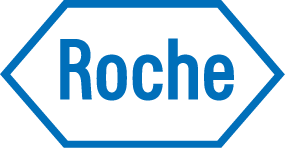
Sponsored by Roche
09:45 - 11:15 | Friday, November 15, 2024
12. Collaborative Strategies for Addressing Healthcare Systems Surges: A Panel Discussion on Systems Transformation
Purpose: Unveiling the complexities of healthcare system surges, this panel explores collaborative strategies, aiming to catalyze effective systems transformation for ensuring safe and efficient patient care amidst surges.
Background: The Whitehorse General Hospital (WGH) faced a significant surge in patient volume and acuity in February 2024, overwhelming its capacity. With 14 out of 15 emergency department (ED) beds occupied by inpatients, the strain on resources was evident. Operating at 120% hospital capacity and 200% ICU capacity, the surge not only strained hospital resources but also significantly impacted patients and families. Patients faced prolonged wait times and overcrowded conditions, leading to instances of hallway medicine and cancellation of surgeries. In response, WGH activated an Incident Command System and sought assistance from external partners to manage the crisis. These circumstances highlight leadership lessons learned surrounding collaborative strategies and innovative solutions to navigate healthcare systems surges.
Learning Objectives: By the end of the presentation, participants will demonstrate their ability to implement coalition-building strategies, optimize resources effectively, and collaborate across organizations to manage healthcare systems surges. They will measure their progress in developing transformative leadership skills, fostering resilience, and enhancing adaptability in real-world scenarios.
Practical Application: The panel will explore collaborative initiatives undertaken during healthcare systems surges, encompassing coordinated responses from WGH, Emergency Medical Services (EMS), Long-Term Care (LTC) facilities, amongst other stakeholders. These lessons learned can be directly applied to improve crisis management and resource allocation in their own healthcare settings during times of surge.
Anticipated Outcomes: Attendees will gain valuable insights into leadership approaches and strategies employed during healthcare systems surges, including adaptability, communication, and cross-sector collaboration. The session aims to inspire participants to implement innovative solutions and foster a culture of collaboration in their respective healthcare organizations.
Speakers:
Jessica Mulli - Director of Nursing, Yukon Hospital Corporation
Stefanie Ralph - Executive Director, Patient Care Access and Flow, Yukon Hospital Corporation
13. The collaborative struggle: Why is collaboration so hard and what might healthcare leaders do about it?
Healthcare leaders increasingly are being called to lead and engage in collaborative initiatives at the policy, administrative, and practice levels. These collaborations can include those of the same profession and across professions; within the same organization and across organizations; with patients and families and non-profits; and across the care continuum. However, collaboration can be both challenging and time consuming; often the very institutions calling for collaboration pose barriers to its success. The purpose of this workshop is to contextualize why collaboration is so hard and to co-develop mitigation strategies as healthcare leaders.
The two key learning objectives in this interactive workshop include: (1) identification of collaborative concepts within participants’ personal collaborative stories and (2) co-development of applicable mitigation strategies for common collaborative struggles that participants can apply in their own practice. Conversation will be guided by key concepts from the academic literature, which identifies the institutional conditions (e.g., the need for resourcing and new governance structures) and leadership competencies (e.g., in trust building and managing multiple accountabilities) required to foster collaborative success. We also will be guided by the LEADS framework’s domains of engaging others and developing coalitions.
The audiences for this workshop are healthcare leaders who are engaged in collaborative initiatives and associated researchers. This workshop is intended for those grappling with how to collaboratively provide equitable, high-quality care in an increasingly complex environment, while also attending to cost containment and health human resourcing needs. We invite those who lead across the healthcare continuum to join us to contextualize their own experiences through the sharing of academic literature, storytelling, self-reflection, small group discussion, pattern identification, and collective mitigation strategy development. Drawing on both the academic literature and the wisdom of the group, this workshop will focus on the co-development of innovative, practical mitigation strategies for overcoming common collaboration struggles.
Speakers:
Monique Walsh - Director, Strategic Initiatives, Interior Health
Amy Zidulka - Associate Professor, Royal Roads University
Ingrid Kajzer Mitchell - Associate Professor, Royal Roads University
14. Campfire session – Systems Transformation
14.1 Net-Zero Healthcare: Unleashing Collaboration for Systemic Change and Resilience
This campfire session aims to ignite transformative dialogue, empowering healthcare leaders to innovate and collaborate towards net-zero emissions for a resilient future.
Learning Objectives:
- Identify and strategize against barriers to net-zero emissions, engaging teams in environmental audits for accountability and improvement.
- Collaborate on decarbonization models, utilizing case studies to build cross-functional teams and harness diverse perspectives for effective solutions.
- Implement practical strategies for sustainable healthcare, setting clear goals, and maintaining momentum through progress monitoring and success celebration.
Leadership Lessons:
- Navigating Change: Demonstrating sustainability's value to overcome resistance, benefiting both environment and patient care.
- Fostering Collaboration: Amplifying impact through coalitions across departments and with external stakeholders, emphasizing open communication and shared goals.
- Empowering Others: Boosting engagement and innovation by encouraging team ownership of projects and recognizing their contributions.
Conference Relevance: Aligned with "Synergies in Action: The Power of Collaboration," this session highlights leadership's role in uniting stakeholders for sustainability, inspiring systemic change towards net-zero emissions.
Conclusion: "Net-Zero Healthcare: Unleashing Collaboration for Systemic Change and Resilience" provides a dynamic platform for leaders to evolve from idea to action, fostering an environment of collaboration, innovation, and resilience. Participants will leave equipped to drive sustainable healthcare forward.
Speaker:
Ryan Duffy - Founder & CEO, Blackstone Energy Services
14.2 Learning to use effective clinical microsystems to manage complex healthcare systems: Sharing and reflecting our experiences on the implementation of Accountable Care Units at the Pasqua Hospital
Communication and collaboration of multidisciplinary teams in hospital is paramount for patient safety and care. The Accountable Care Unit (ACU) is an attempt to use an effective clinical microsystem design through the implementation of four unit-based interventions. The four interventions are: 1) structured interdisciplinary bedside rounds, 2) nurse and physician co-leadership, 3) unit-based teams, 4) unit-based metrics. The first ACU was implemented on a 35-bed medicine unit followed by three other units at the Pasqua Hospital. This presentation will outline and describe our experience implementing each feature of the ACU. We will show the value of working side-by-side with patient family advisors (PFAs) on quality improvement projects that led to the advancement of patient safety and care. We will review the results of this intervention including reduction in code blues and patient advocate complaints. The outcome of implementing effective clinical microsystems is to achieve improved patient experiences of care and ultimately, organizational effectiveness. Post presentation discussion will focus on seeing the opportunities, challenges, and barriers of using principles of microsystem design throughout the healthcare system while recognizing its potential optimize patient and family centered care.
Speaker:
Ron Taylor - Hospitalist, Saskatchewan Health Authority
Tom Martin - Quality & Strategy Specialist, Saskatchewan Health Authority
15. Lightning session – Develop Coalitions/Engage Others
15.1 Three strategies for front-line leaders to retain late-career nurses
What can frontline leaders do to hold on to their team’s experienced nurses? Late-career nurses are a significant proportion of the healthcare workforce, and their expertise and guidance are required to stabilize the healthcare system during an influx of new graduates and internationally educated workers. Many nurses report they would stay in the workforce, but consider retirement due to challenges in scheduling, lack of professional training and growth, and workplace conditions.
There is no one-size-fits-all approach, but there are a few options stand out in Health Canada’s Nursing Retention Toolkit, and are supported by research: flexible scheduling, new work roles with a focus on mentoring, and improvement of workplace conditions like break/rest space. Frontline leaders can utilize the LEADS framework to effectively retain late-career nurses by engaging others.
First, experienced workers respond when they are directly involved in planning for the future, which may be their own career path, or the wellbeing and effectiveness of their team. Secondly, to define and support roles with dedicated time and resources to mentor others, particularly those with flexible schedules, allow for a longer period of meaningful contribution in the workforce while balancing personal commitments like health and caregiving. Third, protection of space to support rest and care for self in the workplace reflects value and respect. Ultimately, research reports the active involvement of frontline leaders is the key to meaningful conversations and continued engagement of nurses through these three actions in the workforce.
Faced with our current workforce demands, leaders have an opportunity to utilize the Nursing Retention Toolkit and collaborate with experienced team members to strengthen and create sustainability within a constantly fluctuating workforce facing many new and unpredictable challenges.
Speaker:
Kelly Baskerville - Masters Candidate, University of Alberta
Kristina LeMay - Masters student
15.2 Engaging others to stay engaged: A novel allied health new graduate program
This presentation will highlight the importance and benefit of engaging others by describing the development, implementation, and continuous improvement of a novel allied health interdisciplinary new graduate program. By the end of the presentation, attendees will be able to recognize different methods of engagement and categorize them within the four capabilities to engage others effectively.
Research shows that professional isolation and unsupportive environments are contributing reasons for job attrition, while a sense of autonomy and organizational commitment are associated with reduced turnover intention amongst allied health professionals. New graduate transition support programs are well established in the nursing profession and afford an early opportunity to engage with staff to address such factors; however, few models of such programs exist in the broad realm of allied health.
With this blank slate ahead, development of a new graduate program was informed through consultation with internal and external allied health leaders, focus groups with early-career allied health professionals, and a review with a patient partner. The resulting program engages new allied health graduates to empower them in their own professional development, to create connections for peer support and future collaboration, and to nurture an organizational environment that is receptive to new ideas. As it unfolds, the program is continuously adapted in response to a multimodal evaluation approach.
This presentation highlights the lesson that systematic engagement is critical to the successful development and ongoing implementation of any program. Attendees will participate in one of the many engagement activities employed in the new graduate program (confidential participation via a mobile phone). This presentation will also share key components (structure, activities, curriculum) of the new graduate program that have been most impactful for supporting new allied health professionals in the workforce.
Speaker:
Riley Louie - Leader, Clinical Projects and Strategic Initiatives, Providence Health Care
15.3 Essential care partner program
We co-designed with patients and family representatives/advisors the ‘Essential Care Partners’ program where patients define who is essential as part of their care, and the hospital team formally recognizes as works with the care partner in the patient’s hospital journey.
To understand the role of an Essential Care Partner, including how they are identified by the family and agreed upon by the hospital
To understand how we used co-design methodology in developing this program
To understand how this program is evaluated.
This project demonstrates how the collaboration on both the design of the project (co-designed with patients and family advisors) and the project itself, essential care partners collaborating with the healthcare team for the benefit of the patient.
Patients have the support they need while in the hospital.
Staff has additional support from patients and families
There is a standardized process across the organization on how to engage patients and families.
Clarity of different roles in patient circle of care
We achieved partnership and meaningful engagement. The program implementation is co-lead with a patient and family representatives.
We followed the co-design principles and Healthcare Excellence Canada’s Patient Engagement Framework (October 2023)
Building coalition and trust take time but has much better results.
Flexibility of the engagement. Although we create the general structures and processes, the program is quite flexible and allows adjustments for individualization based on each patient/family/service needs while keeping the key elements.
Speakers:
Valentina Constantinescu - Patient Partnership Lead, Joseph’s Healthcare Hamilton
Helene Hamilton - Patient and family Advisor
16. A recipe for success: patient engagement principles for transformative change
Change management draws on theories from many disciplines, including psychology, behavioral science, engine, and systems thinking. A central idea to all change management theories is that no change ever happens in isolation.[1] When looking at designing quality improvement initiatives, frameworks used often include dimensions such as effectiveness, efficiency, safety, etc. Oftentimes, the considerations of the clients’ (patients’) perspective on quality care are either not considered or take a backseat in the process. Even when using more inclusive frameworks, are the perspectives and experiences of service users truly included in the intervention(s)?
This session will explore successful strategies used to reduce structural stigma in health care. Structural stigma refers to the inequitable de-prioritization and devaluation of mental health and substance use (MHSU), as compared to physical health, within healthcare delivery, governance, and knowledge building. When it becomes embedded throughout the health-care system, it creates barriers for people trying to access quality care.
An engaging panel discussion with highlight essential principles that support co-design, shared governance, and patient engagement. This presentation also seeks to raise awareness of structural stigma in our health-care system and to leverage real-world examples by learning from their initiatives that may assist/inspire health leaders, administrators, providers, and policymakers to reduce structural stigma in their organizations.
Learning objectives:
- Learn about key principles of transformative change in healthcare.
- Gain understanding of MHSU-related structural stigma and how it impacts patients, providers and or the health care system.
- Be inspired by practical insights to actively address structural stigma and promote more equitable and inclusive healthcare practices in their organizations.
Speakers:
Anita David - Lived-Experience Strategic Advisor, BC Mental Health and Substance Use Services
Malachite Goudie-Groat - Operations Lead, Health Justice
Hannah Kohler - Senior Program Manager, Prevention and Promotion Initiatives, Mental Health Commission of Canada
Optional Events
Wanuskewin Workshop
09:30 - 12:30 | Wednesday, November 13, 2024
Wanuskewin, the nēhiyawēwin (Plains Cree) word roughly translated as 'seeking peace of mind' has been a sacred site and gathering place for more than 6,400 years. Together, we work to advance the understanding and appreciation of the evolving cultures of the Northern Plains Indigenous peoples.
Our newly expanded Interpretive Centre is home to beautifully curated interactive exhibits, art galleries, videos, and presentation spaces celebrating Northern Plains Indigenous cultures.
Schedule
10:00 a.m. – Arrival and welcome
10:15 a.m. – Program 1 – Tipi Teachings
11:00 a.m. – Program 2 – Step back in time
12:00 p.m. – Departure
Pre-registration is required to participate in this workshop. Size limit: 25 attendees. The cost to attend this event is $35 (plus tax). Transportation is provided. Note that this workshop may include some outdoor activities. Please ensure you have appropriate footwear and clothing.
Study Tour: Vaccine and Infectious Disease Organization (VIDO)
13:30 - 15:30 | Wednesday, November 13, 2024
The Vaccine Development Centre (VDC)—VIDO’s new vaccine manufacturing facility—advances the development of new vaccines to strengthen global preparedness for emerging infectious diseases.
The VDC can produce vaccines for human clinical trials and commercial-scale veterinary vaccines under Good Manufacturing Practice (GMP) standards. GMP standards are used by the regulatory agencies to ensure medicines are safely produced.
Centre Highlights:
- Containment level 3 capable for Risk Group 3 pathogens
- GMP compliant
- Up to 1000L bioreactors and 500m2 fixed-bed bioreactor
- Capacity to produce inactivated, live attenuated, subunit, viral vectored, mRNA, and DNA vaccines, GMP virus and phage, and other biologics
- Support for process development—expertise to take new products from the bench-top to full scale manufacturing
- Capable of manufacturing commercial veterinary vaccines and human vaccines for Phase 1 and Phase 2 clinical trials
Pre-registration is required to participate in this presentation and tour. Size limit: 20 attendees. The cost to attend this event is $25 (plus tax). Transportation is provided. Attendees are required to have a photo ID that matches the name on the registration list to access this tour. No photos are allowed.
Wellness Activity - Chair Yoga
06:30 - 07:30 | Thursday, November 14, 2024
Not everyone can get up and down off the floor easily making traditional yoga classes difficult. With the help of a chair anyone can practice yoga with the same benefits of increased circulation, balance, flexibility, mobility and strength.
Chair Yoga exercises and postures are suitable for anyone who wants to improve their health and well-being. Chairs and other props will be used in this Hatha-inspired yoga class to improve mobility, strength, balance, circulation, respiration, digestion, and clarity of mind. In Chair Yoga, we will focus on feet, legs, and hips; hands, arms and shoulders; as well as spinal mobility and core body strength; all coordinated to purposeful breathing. People of every age, ability, strength, or experience level are welcome in Chair Yoga. This includes those with arthritis, joint replacements, Parkinsons disease, MS, and a host of other musculoskeletal, neurological, and cardio-respiratory conditions.
Pre-registration is required to participate in this class. Size limit: 30 people. The cost to attend this class is $10 (plus tax).
CHE Program One-on-One Consultations

Take advantage of this unique opportunity to meet in a “One-on-One” setting with Stéphane Joannette, Manager of Professional Certifications and Strategic Alliances at The Canadian College of Health Leaders during the 2024 CWHLC on November 13-15, 2024 to answer some of your questions and to gain insights on the CHE Program.
Click here to book your One-on-One consultation with Stéphane.
Our Sponsors
Hoping to gain exposure, build good will, and connect with health leaders?
Sponsoring CCHL’s Canada West Health Leaders Conference might be the perfect approach.
With a stellar program, we know that the Canada West Health Leaders Conference will provide an inspiring and interactive environment for top decision makers in the healthcare field and will offer you many networking opportunities. The College is offering a number of levels of sponsorship. Each level provides the sponsor with a significant list of benefits and opportunities. Flexibility is available at each level.
Click here to view the sponsorship opportunities.
Please contact Jaime Cleroux at jcleroux@cchl-ccls.ca with any questions.
Gold
Bronze
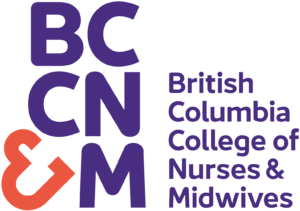
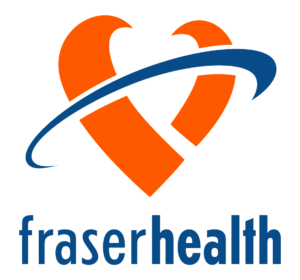
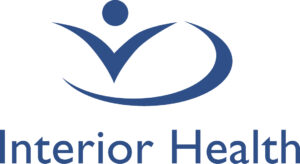
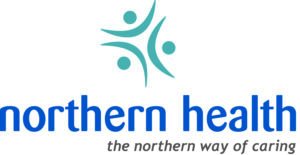
Directed

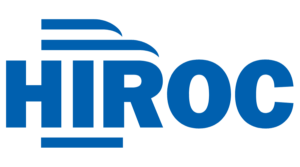


Venue

TCU Place
#35 22nd St E
Saskatoon, SK S7K 0C8
Accommodations
Delta Hotels Saskatoon Downtown
405 20th St E
Saskatoon, SK S7K 6X6
Tel: 306 665 3322
Marriott.com/YXEDS
Online booking
Be surrounded with picturesque views, from select rooms at our hotel in Saskatoon, Canada, Delta Hotels Saskatoon Downtown. Elevate your experience in the city of bridges with a stay at our downtown hotel in Saskatoon, located steps from the all-season walking paths that hug the banks of the South Saskatchewan River. Augment your wellness with our hotel’s free meditation and yoga packages, complimentary hydration stations and a tastefully finished, 1,400-sq foot fitness centre. Sample healthy, locally sourced cuisine in Saskatoon at Aroma Restaurant or grab nutritious snacks at The Grind Coffee Bar, proudly serving Starbucks coffee. Finally, our hotels indoor waterpark boasts two heated pools, a whirlpool and a three-story waterslide. Welcome to Delta Hotels Saskatoon Downtown, a gem in the center of Saskatoon Canada.
Corner Queen $179.00
Corner Queen River $189.00
Standard King $189.00
Room rates do not include taxes and fees. Reservations must be made by October 18, 2024, to benefit from this conference rate. Any cancellations must be received 3 days before arrival to avoid cancellation charges.


Holiday Inn Saskatoon Downtown
101 Pacific Avenue
Saskatoon, SK S7K 1N8
Reservations: 1 888 465 4329
Website
Online booking
The Holiday Inn Saskatoon Downtown is Saskatoon's latest, state of the art hotel ideally located in the Central Business District at the heart of Saskatoon's vibrant downtown core. Designed to give guests a true taste of the new IHG lifestyle, Holiday Inn Saskatoon Downtown has become one of Saskatchewan’s most desirable hotels. You’ll find yourself at the center of it all being only steps away from TCU Place for all your Conference and Convention needs, shopping, the YMCA, the Remai Art Gallery, and a vibrant restaurant scene. Only minutes away from SaskTel Centre for concerts, Saskatoon Airport, and the Prairieland Exhibition grounds.
Standard King $189.99
Standard Queen $189.99
Two Queens $189.99
Room rates do not include taxes and fees. Reservations must be made by October 18, 2024, to benefit from this conference rate. Any cancellations must be received 2 day before arrival to avoid cancellation charges.
For more information
Please contact:
Brianna Lavoy
Manager, Conferences and Events
blavoy@cchl-ccls.ca
1-800-363-9056 ext 232
See our past Canada West Health Leaders Conferences
View our past CWHLC conferences: Find Out More








